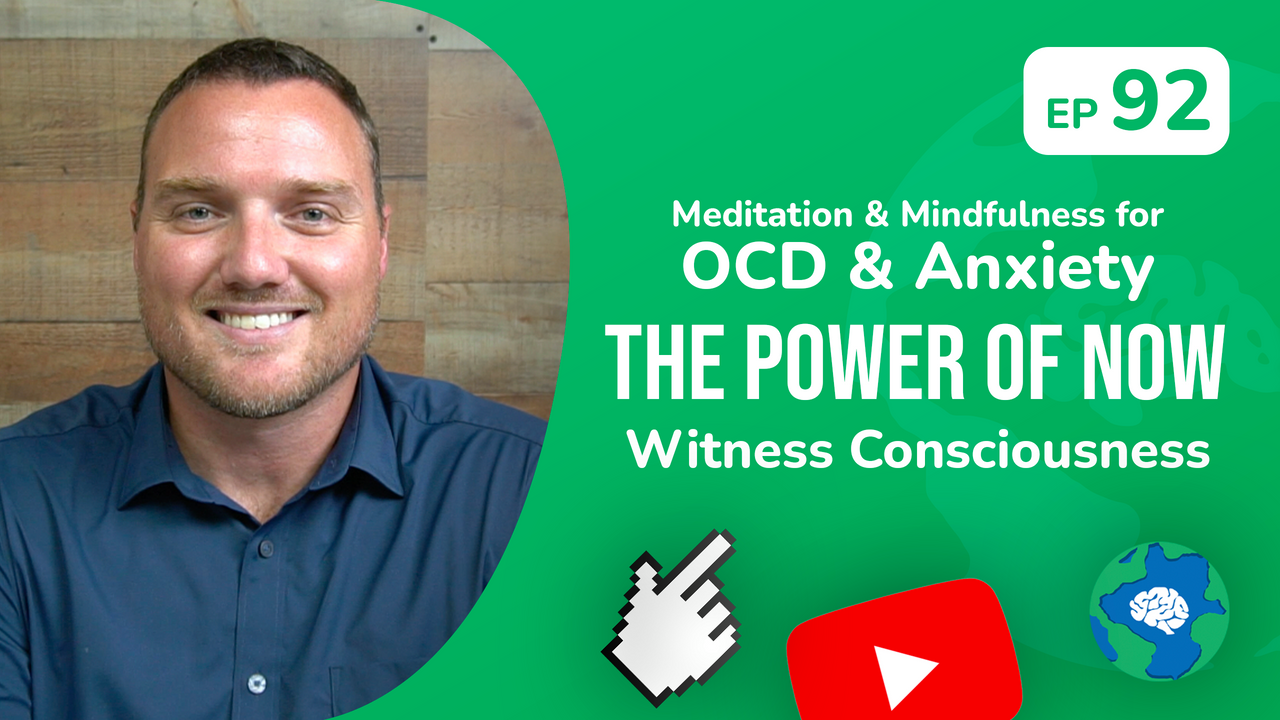Meditation and Mindfulness for OCD & Anxiety - The Power Of Now - Witness Consciousness
Jun 16, 2021
Meditation and Mindfulness for OCD and Anxiety: Understanding Witness Consciousness
What is the Voice in Your Mind?
In our previous post, we discussed the concept of the voice in the mind. Tolle explains the separation between the "I" and "myself," highlighting that we are not our incessant thoughts but the observer of those thoughts. This idea is echoed by Michael Singer's witness consciousness, which distinguishes between the voice in your head and the one who hears it.
Meditation: The Practice of Witness Consciousness
So, how does meditation play into our recovery from OCD and anxiety? Unlike the common misconception that we should meditate to achieve a state of absolute silence in our mind, meditation is about practicing the observation of our mind's chatter without getting entangled in it. It’s about sitting in the seat of the higher self and recognizing that you are not your thoughts.
Understanding the Seat of Self
The journey of meditation is about reaching the seat of the higher self. This isn't a new concept; it has been discussed throughout history under various terminologies like the objective self or the impartial spectator. The primary goal here is to understand that the constant chatter in our mind is not the true essence of who we are.
The Power of Now: The Profound Shift in Consciousness
Tolle’s The Power of Now talks about a profound transformation in human consciousness. This shift is not a distant, elusive state, but something accessible right now, wherever you are. By detaching from the mind's incessant worry about the past and future, you step into freedom—a state of being fully present in the Here and Now.
The Trap of the Mind
One major pitfall, or the enslavement to the mind, is its tendency to pull us into past regrets or future anxieties. This happens due to the mind’s capability to create endless scenarios, leading to infinite "what-if" thoughts. Getting trapped in these thoughts prevents us from living in the present, making us miss out on life itself.
Meditation and Recovery from OCD and Anxiety
When beginning the journey of recovery from OCD and anxiety, we often hear about tools like mindfulness, meditation, Exposure and Response Prevention (ERP), and Acceptance Commitment Therapy (ACT). However, frustration arises when these tools don't yield the desired results immediately.
The Role of Meditation in Recovery
Meditation should not be used merely as a tool to stop unwanted thoughts or anxieties instantly. Instead, it is a practice to cultivate witness consciousness. It helps in differentiating between your true self and the incessant chatter in your mind. By doing so, you gain freedom and control over how you respond to your thoughts, rather than reacting impulsively.
How to Meditate Correctly
Many people give up on meditation because they believe their mind must be completely silent. In reality, meditation is about observing thoughts without engaging. It's a practice of returning to the present whenever your mind wanders. Techniques like focusing on your breath can serve as an anchor to the present moment.
Breaking the Cycle: The Triple A Response
At Restored Minds, we use the Triple A Response in our Taking Back Control program, emphasizing conscious decisions in how we respond to our thoughts and feelings. Avoiding compulsive behaviors and safety rituals allows the anxiety loop to break, leading to genuine recovery.
Conclusion
As we continue this series, it’s crucial to grasp the higher-level concepts of meditation and mindfulness correctly. Don’t use these tools merely to achieve a specific desired outcome but aim to understand and transform your level of consciousness.


